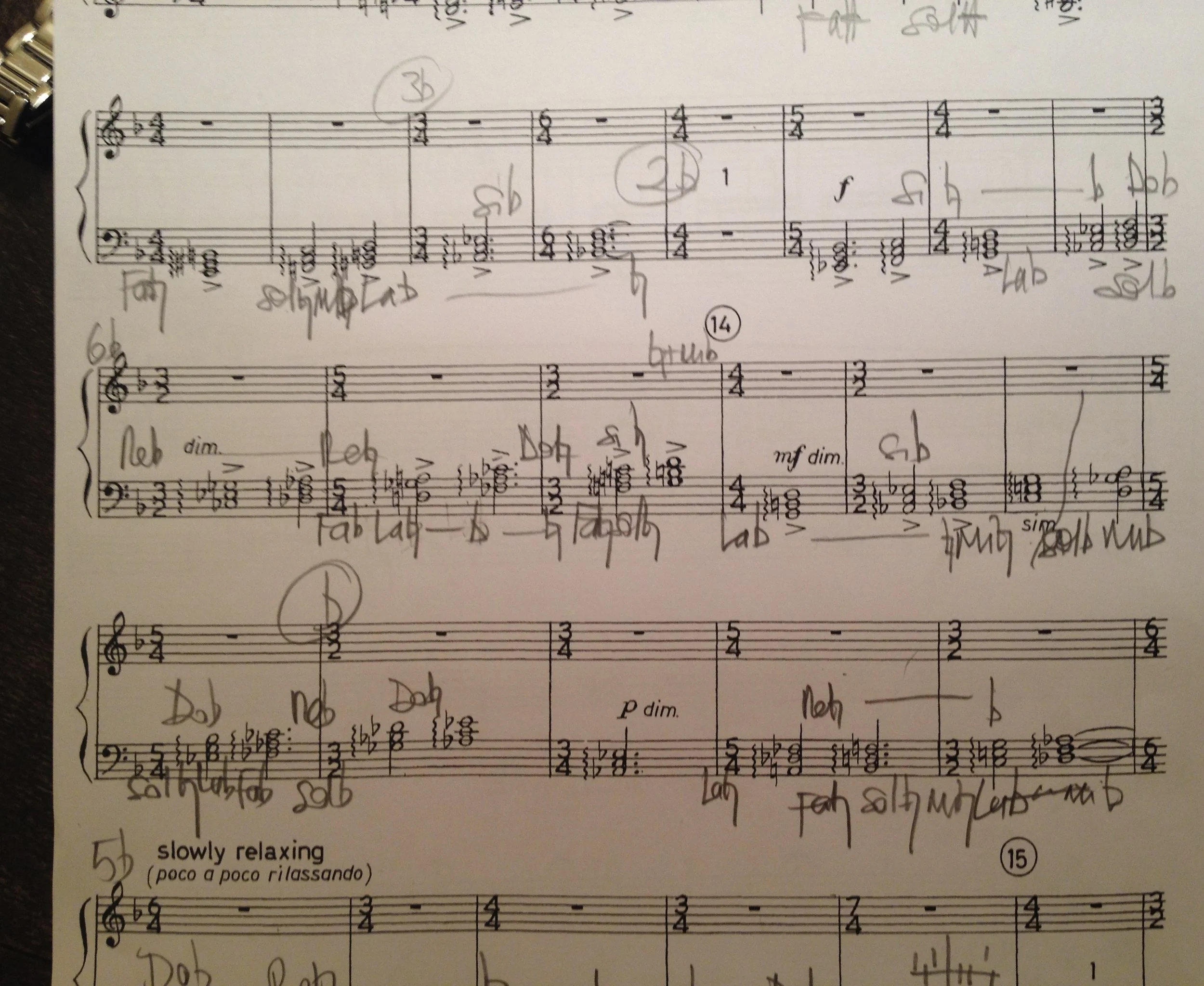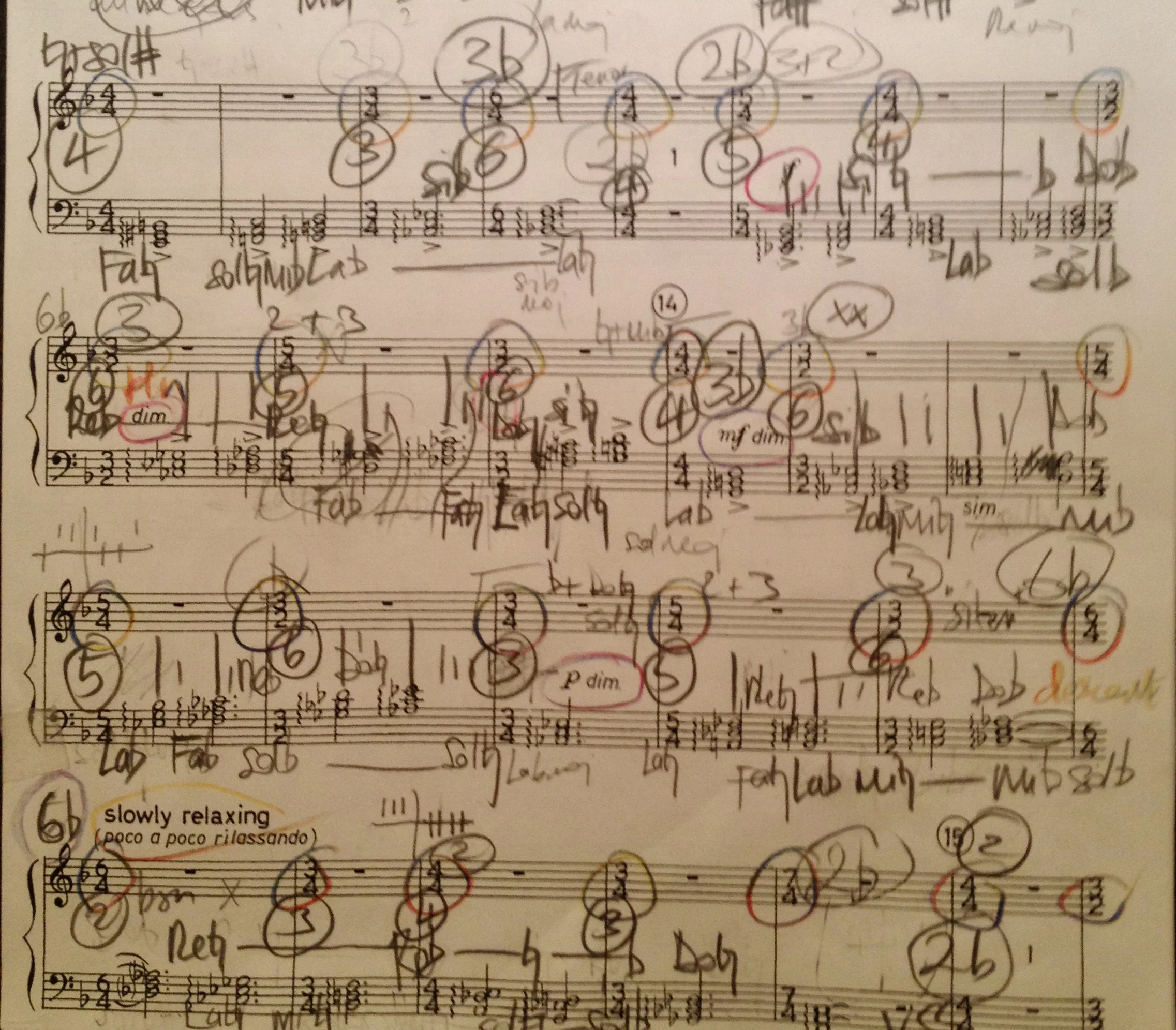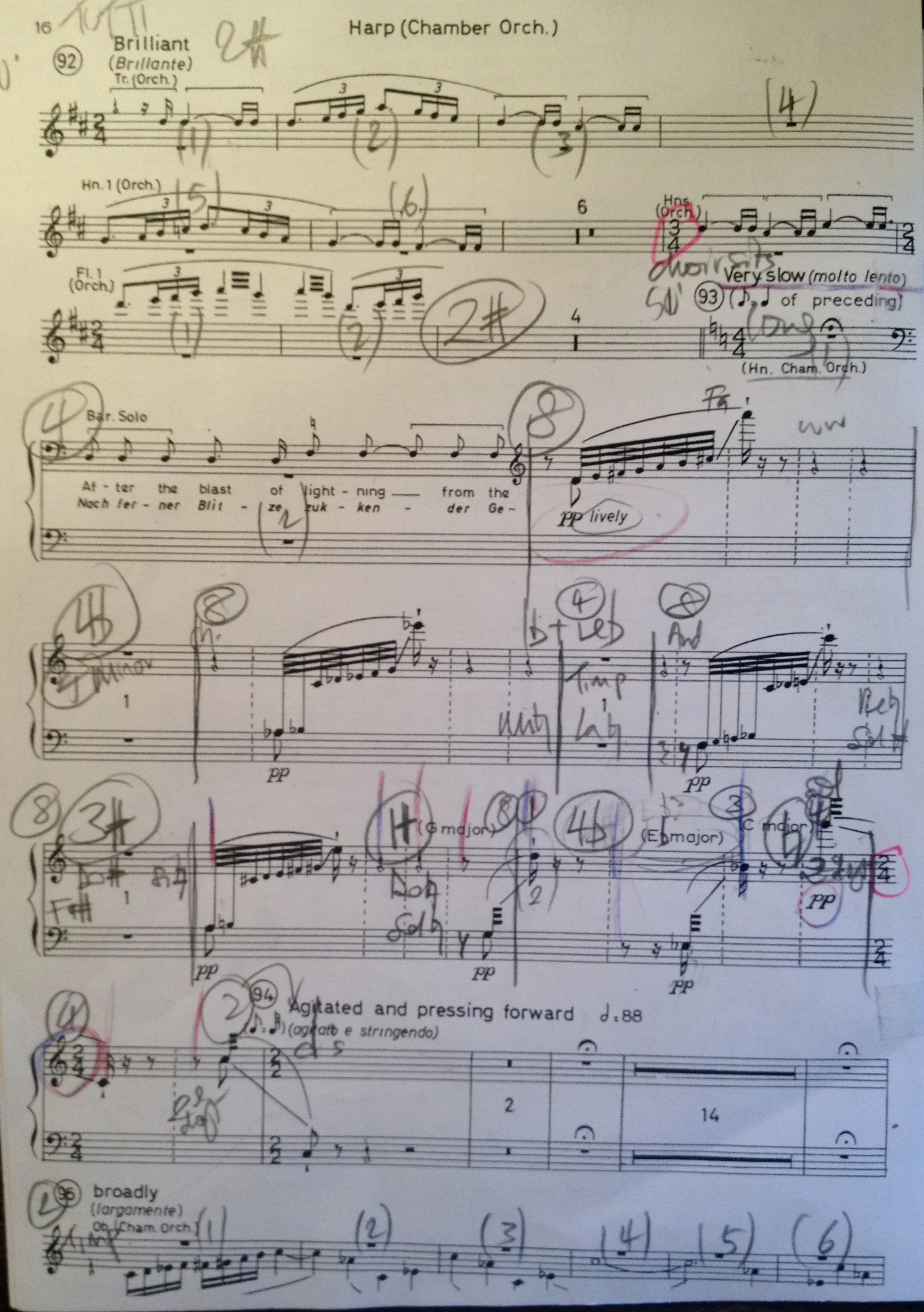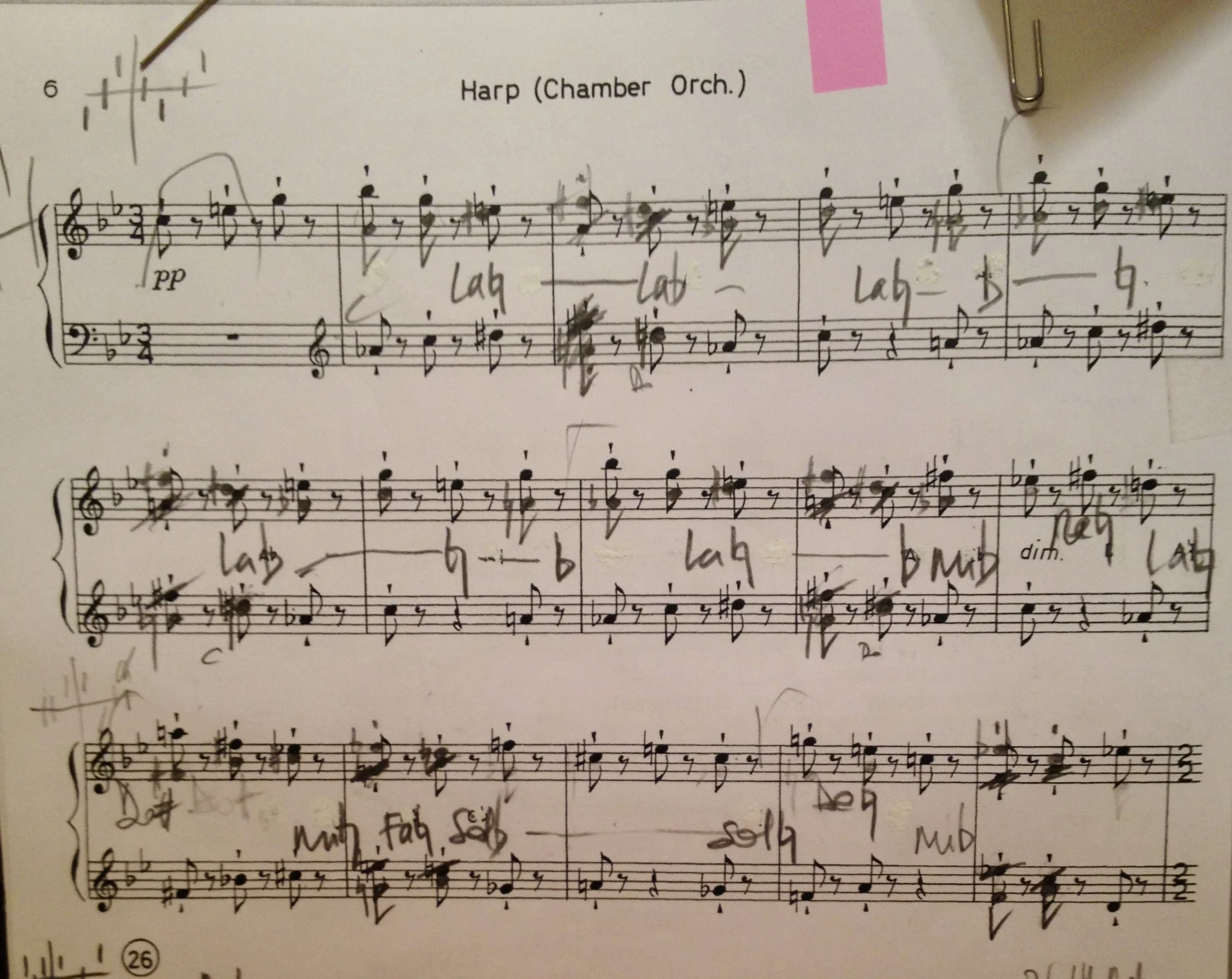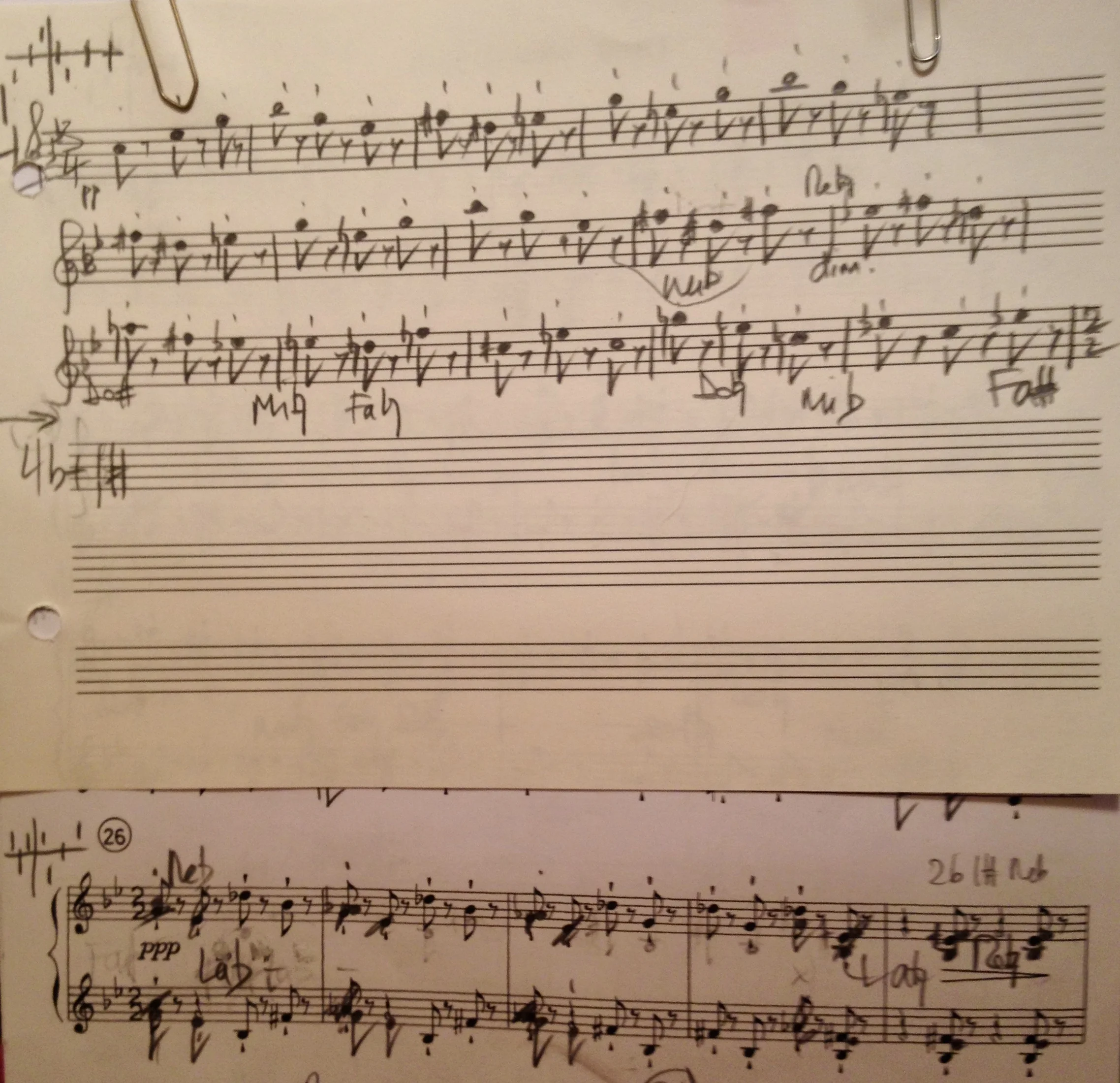23 October
The pedalling passage
11 November
I feel a bit embarrassed about putting this messy picture up but I’m suspicious of people with pristine sheet music! Here is the page above with added creative process. Given another couple of days I could have easily played from this score but I ran out of time. People say my parts are unreadable. To me they make perfect sense - by that stage of learning, the reflexes and muscle memory have been programmed. The notes would have become part of me and I could have played it with my eyes shut
I realise that by writing with utter honesty here, if a fixer or colleague reads this it may jeopardise my chances of being offered orchestral work but I’m willing to take that risk. I see images and reports of perfect performances online (let’s face it, nobody wants to admit to a performance that’s below par) and I wonder how perfect these are. What about the f**k ups? What about dealing with difficult situations? I always aim to play all the notes and forget this isn’t always possible, especially when rehearsal time is brief. Sometimes a plan B is called for and as a tenacious perfectionist, I’m not always great at resorting to plan B.
Hindsight is a beautiful thing and there’s an opportunity to learn and not beat myself up. I thought I’d share some of my experience learning Britten’s War Requiem and what I gained from it. If I was doing work like this all the time and not trying to reboot my life it would have been easier - I haven’t had to learn a particularly challenging new piece this year so my process isn’t as well honed as it used to be.
I have a very specific sound in mind when I learn a new piece. Take Tosca for example - it demands a Puccini sound that’s often full and lush. If I approached Britten’s music with that style it would sound wrong. This makes life harder but I’ve never been one for just playing the notes, occasionally to my detriment.
My biggest enemy these days is time. If I’d had time I would have taken a clean photocopy of the original page and marked it up again without all my workings out leaving the bare minimum of markings. Ideally I would have enlarged this page and maybe put it on Sibelius if I had it and knew how to use it. Again I realise the majority of my work is last minute which has a knock on effect on everything else. I’ve never been a strong sight-reader so now, with my increasingly poor eyesight, I need to learn difficult pieces thoroughly to feel confident about playing, watching the conductor and listening to my colleagues.
This short and relatively simple section needed to be memorised
I’m glad I’ve had the opportunity to learn and perform War Requiem and it puts me in good stead if it comes round again or if I’m asked to teach or coach it.
This week is busy again with two big programmes over the weekend, including a couple of works I’ve never played. Everything else is familiar which is reassuring and the new pieces aren’t particularly challenging. There’s even a piece which brings a smile to my face! I commit to practicing slowly and calmly with curiosity and doing 4 hours on my quieter days, and making more time to listen to recordings of the pieces I’m working on. I also commit to finding a way of recording myself at home, mainly to log my own process and progress and to get used to recording. I commit to getting my eyes tested next week. Oh and I commit to believing in myself again, and in my love for music and my passion for sharing it.
Another tricky passage
Plan B

